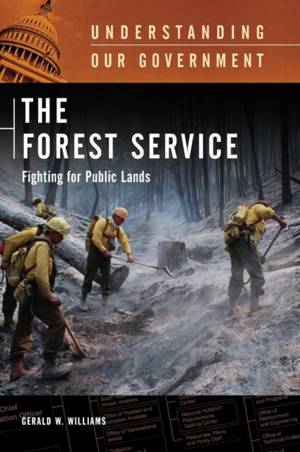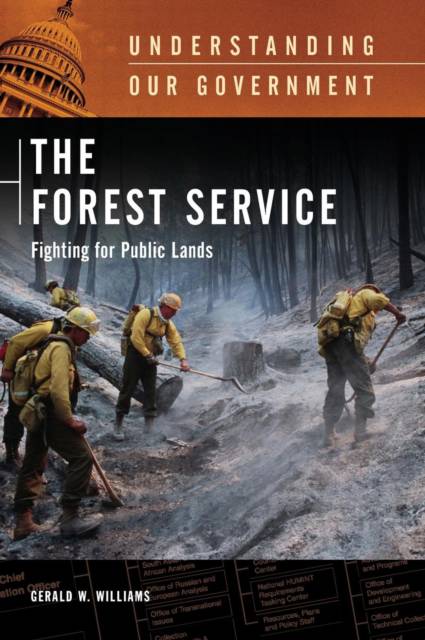
- Retrait gratuit dans votre magasin Club
- 7.000.000 titres dans notre catalogue
- Payer en toute sécurité
- Toujours un magasin près de chez vous
- Retrait gratuit dans votre magasin Club
- 7.000.0000 titres dans notre catalogue
- Payer en toute sécurité
- Toujours un magasin près de chez vous
Description
Established in 1905, The Forest Service is steeped in history, conflict, strong personalities (including Theodore Roosevelt and Gifford Pinchot), and the challenges of managing 193 million acres of national forests and grasslands. This unique federal agency is one that combines forest management with wildlife, fish, recreation, mining, grazing, and hundreds of other uses. It operates in the midst of controversy and change. The original intent was to protect the public forests, protect the water supplies, and, when appropriate, provide timber. Much has changed over the last 100 years including many new laws, but the fact that these lands are still fought over today shows the foresight of politicians, foresters, scientists, and communities. This work brings to light the many and varied activities of the agency that many people know little about in a world that is constantly changing.
Written by a former Forest Service national historian, topics discussed in the work include wilderness and the Wilderness Act of 1964, recreation battles and interagency rivalry with the National Park Service, timber management including clearcutting, ecosystem management, roadless area and controversies over RARE and RARE II studies, fish and wildlife management including endangered species before and after the Endangered Species Act of 1973, and mining and the General Mining Act of 1872. It also discusses the future challenges: forest fires, water protection and restoration, recreation, involving the public, and fish and wildlife.Spécifications
Parties prenantes
- Auteur(s) :
- Editeur:
Contenu
- Nombre de pages :
- 480
- Langue:
- Anglais
- Collection :
Caractéristiques
- EAN:
- 9780313337949
- Date de parution :
- 01-11-06
- Format:
- Livre relié
- Format numérique:
- Genaaid
- Dimensions :
- 183 mm x 262 mm
- Poids :
- 1124 g

Les avis
Nous publions uniquement les avis qui respectent les conditions requises. Consultez nos conditions pour les avis.






